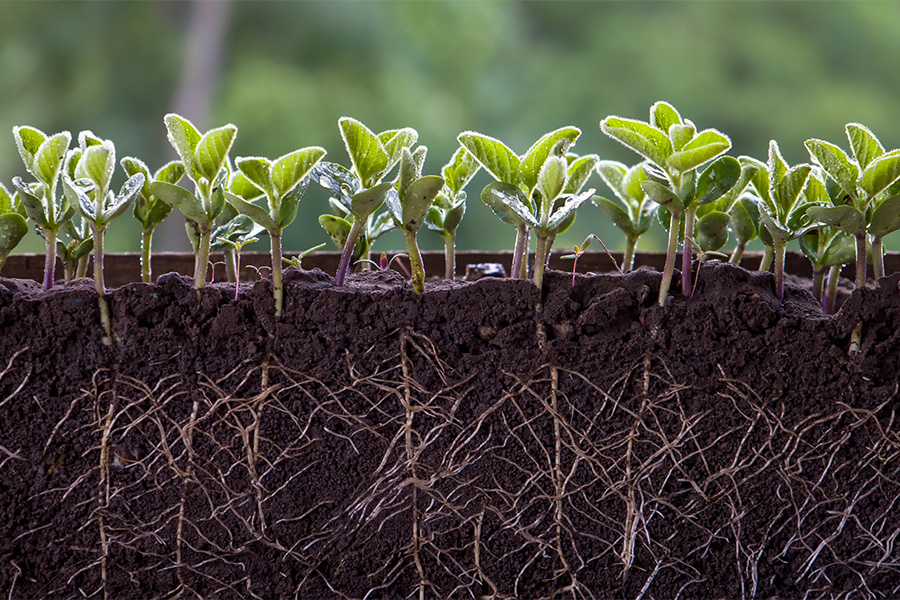Crop and Soil Sciences
-

Many Georgia communities are wrestling with wastewater disposal issues. The choices a community makes may affect its growth and environmental quality. This PowerPoint presentation presents the basics of wastewater treatment systems so that community leaders can make better-informed choices.
Julia W. Gaskin, Larry T. West, and Vaughn Berkheiser
|
-

C 990
Soil Inoculants
Soil inoculants are used for a variety of reasons. In some cases, we add soil organisms that have a known beneficial effect. A symbiotic relationship is one that is mutually beneficial. In return for the plant feeding the rhizobia carbon from photosynthesis and giving it a home, the bacteria can “fix” atmospheric nitrogen into a form that the plant can use.
Julia W. Gaskin, Peter Gary Hartel, Elizabeth L. Little, and Glendon H. Harris
|
-

Producing and/or purchasing hay to feed livestock through the winter represents a substantial expense. This publication details strategies and considerations when stockpiling and utilizing tall fescue.
Dennis Hancock
|
-

This publication shares the collective experience of research and extension personnel on bermudagrass cultivars that are (or could be) grown in Georgia.
Dennis Hancock
|
-

This brief management guideline provides producers with specific management tactics that may minimize the potential for short- and long-term problems. These tactics, categorized in order of early, advanced, and severe drought stages, are based on specific characteristics including water loss, forage growth, and rainfall.
R. Curt Lacy, Dennis Hancock, and Johnny Rossi
|
-

C 915
Nitrate Toxicity
This resource summarizes the effect that high nitrates have on animals, presents the conditions to expect in toxic concentrations of nitrates, and outlines strategies that could prevent or reduce the risk of nitrate toxicity.
Dennis Hancock
|
-

Bermudagrass leafspot is a disease that decreases yields, nutritive value and palatability. This publication discusses leafspot diagnosis and management in bermudagrass.
Alfredo Martinez and John G Andrae
|
-

Hophornbeam copperleaf has become an increasing problem in agricultural fields throughout Georgia. It can occur at densities that have the potential to reduce yields and influence harvest efficiency. Hophornbeam copperleaf is also known as three-seeded mercury.
Eric P. Prostko
|
-

This publication outlines plant persistence and animal performance characteristics of novel endophyte-infected tall fescue and provides recommended pasture renovation practices.
Dennis Hancock
|